The Complete Guide to Cleaning Retainers, Aligners, and Dentures
If you wear a dental appliance — whether it’s a retainer, Invisalign aligners, dentures, a night guard, or a sports mouthguard — keeping it clean isn’t optional. Within hours of wearing, bacteria and plaque start to build up. If left unchecked, this can cause bad breath, visible stains, oral infections, and even damage to your expensive appliance.
The truth? Most people clean their retainers or dentures the wrong way. Brushing with toothpaste, rinsing with mouthwash, or leaving appliances in water overnight may not only fail to remove harmful bacteria, but can actually damage delicate plastics.
That’s exactly why we created the Sonic Pro — the world’s No.1 dentist-chosen ultrasonic + UV appliance cleaner. With over 500,000 units sold worldwide, stocked in 1,000+ dental practices, and backed by multiple product design awards, Sonic Dental is redefining how people care for their retainers and dentures.
This guide will explain why proper cleaning is essential, the science behind ultrasonic + UV cleaning, and why the Sonic Pro offers the gold-standard solution.
Why Cleaning Dental Appliances Is Essential
Your dental appliance spends hours pressed against your teeth and gums — the perfect environment for bacteria to thrive. If you don’t clean it properly, you’re risking:
- Bad breath caused by bacterial build-up.
- Staining and yellowing of clear aligners or dentures.
- Plaque and tartar transfer back to natural teeth.
- Shortened appliance lifespan (expensive replacements).
- Oral health risks such as gum inflammation and infections.
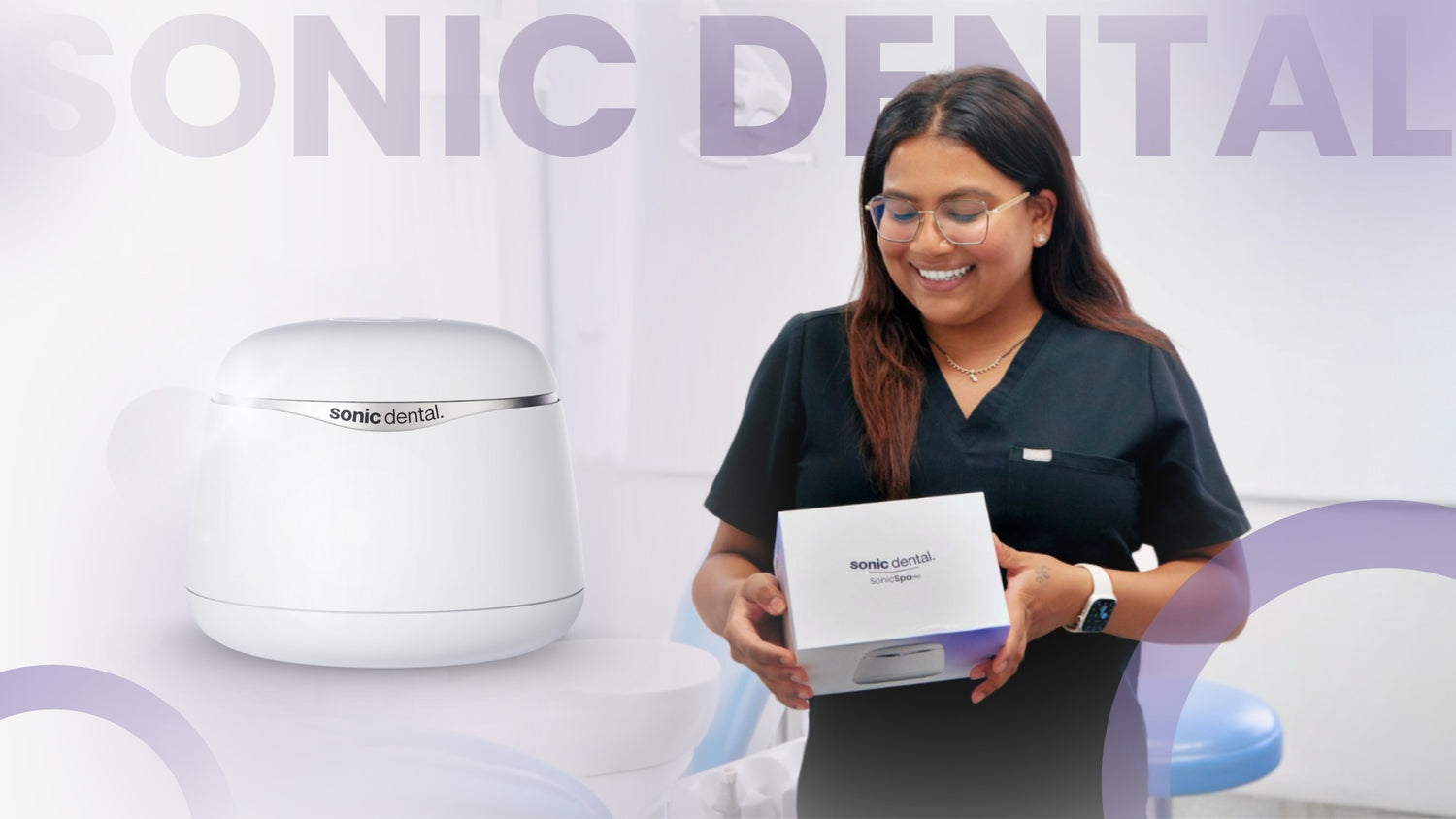
📌 Quick Answer: You should clean retainers, aligners, and dentures daily with the correct method to remove plaque, bacteria, and odor-causing deposits.
Common Cleaning Mistakes to Avoid
Many people unintentionally damage their dental appliances with poor cleaning habits:
❌ Using toothpaste (abrasive scratches where bacteria hide).
❌ Hot/boiling water (warps plastic).
❌ Mouthwash (alcohol dries and cracks).
❌ Bleach or vinegar (corrosive and unsafe).
❌ Leaving retainers dry (bacterial growth accelerates).
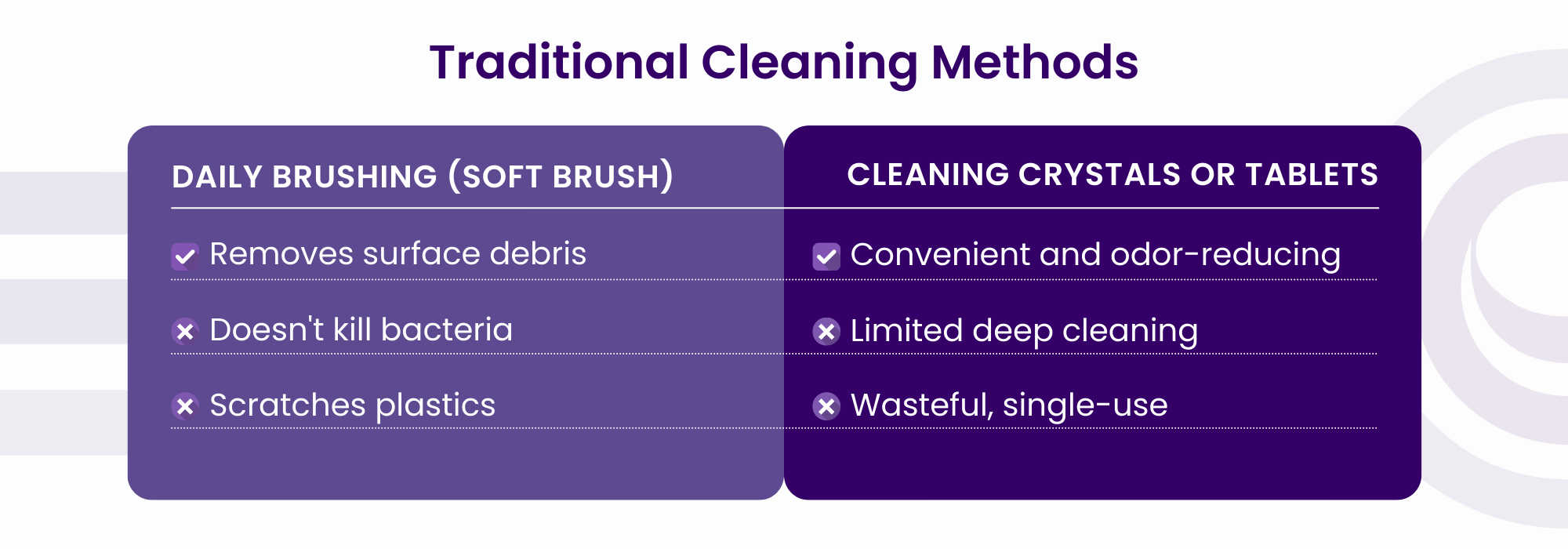
Ultrasonic Cleaning (Sonic Pro’s Core)
✔ Uses high-frequency sound waves to create microscopic bubbles that blast away plaque and debris even in hard-to-reach spots
✔ Backed by studies showing ultrasonic cleaning removes >95% of contaminants compared to brushing or soaking [1]
✔ Safe for plastics, metals, and acrylics
UV Cleaning (Sonic Pro’s Supplementary Power)
✔ UV-C light helps reduce bacteria and microbes on appliance surfaces [2]
✔ Works best when combined with ultrasonic cleaning
❌ UV alone does not remove physical debris or stains
Best Combination = Ultrasonic + UV (Sonic Pro)
The Sonic Pro combines both methods — ultrasonic for physical cleaning + UV for added hygiene protection. Together, they deliver the most complete clean available for home users.
📊 Did you know? Ultrasonic cleaning is up to 95% more effective at debris removal, and UV-C light has been shown to reduce harmful bacteria like E. coli and Staphylococcus aureus [3].
How Often Should You Clean?
- Daily: Use Sonic Pro at least once.
- Weekly: Optional tablet boost for odor/stain prevention.
- Monthly: Inspect for cracks/odor — replace if worn.
Eco-Friendly Benefits of Sonic Pro
- Reduces waste from single-use sachets and crystals.
- Uses just water (and optional tablet).
- Extends appliance lifespan, saving money and resources.
Sonic Pro vs Other Options
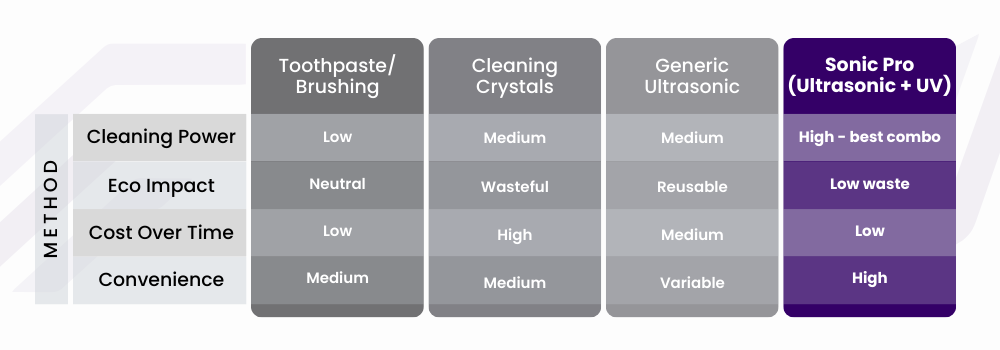
✔ #1 Dentist–Chosen Ultrasonic + UV Cleaner worldwide.
✔ Stocked in 1,000+ practices who trust it for patient appliance care.
✔ Recognized in media (The Telegraph, UK StartUp Awards).
✔ Designed in the UK with a focus on engineering, product quality, and design excellence.
✔ Multi-award winning brand trusted by over 500,000 customers globally.
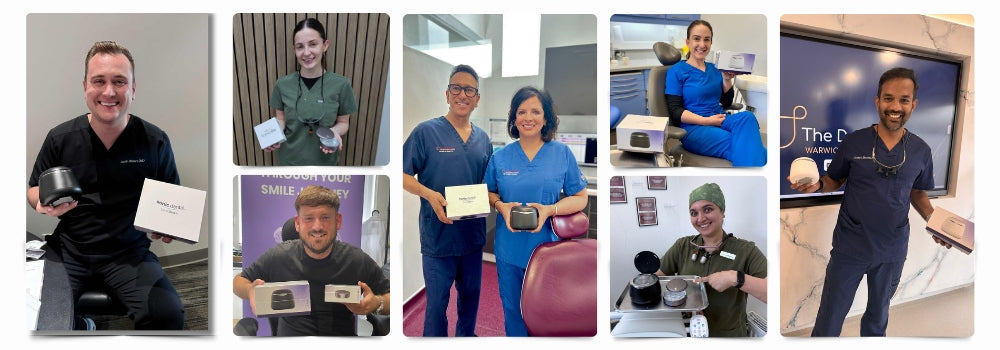
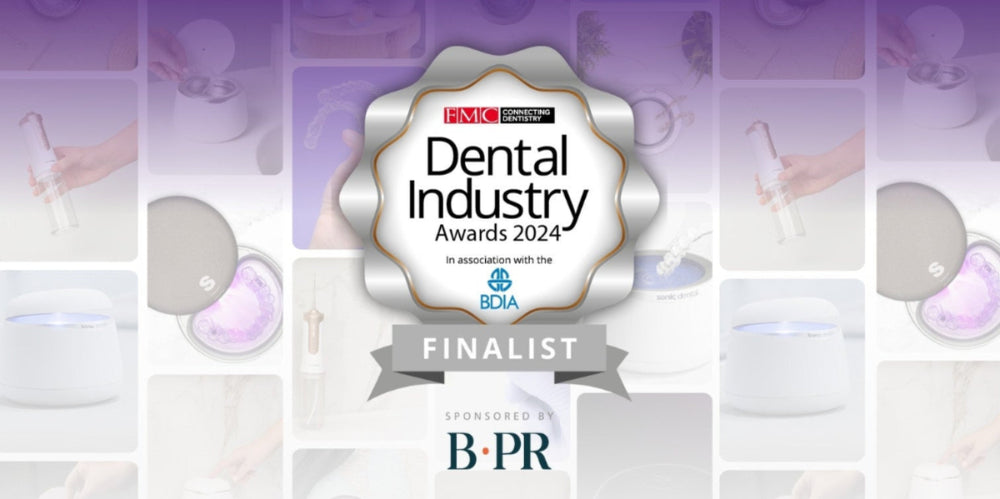

FAQs
Q: Can I use toothpaste on my retainer?
A: No — too abrasive.
Q: Can I clean my appliance in boiling water?
A: No — it will warp the material. Use warm water only.
Q: Is UV alone enough to sterilize my retainer?
A: No — UV reduces bacteria but does not remove debris. The Sonic Pro combines ultrasonic + UV for the best results.
Q: How often should I replace my aligners or retainers?
A: Aligners are replaced every 1–2 weeks as per treatment. Retainers and guards should be replaced if cracked, stained, or warped.
Conclusion
Cleaning your retainer, aligner, or denture properly is essential for fresh breath, oral health, and long-lasting appliances. The evidence is clear: ultrasonic cleaning combined with UV protection is the most effective method available.
That’s why the Sonic Pro is the world’s No.1 dentist-chosen ultrasonic + UV cleaner. With over 500,000 sold worldwide, trusted in 1,000+ dental practices, and backed by award-winning engineering, it’s the gold standard for dental appliance hygiene.
👉 Discover the Sonic Pro today — and experience the science-backed clean that dentists recommend.
References
[1] Barnes, C.M., et al. “Evaluation of ultrasonic cleaning on dental appliances.” Journal of Dentistry, 2014.
[2] Kowalski, W. “Ultraviolet Germicidal Irradiation Handbook.” Springer, 2009.
[3] American Dental Association (ADA). “Cleaning and caring for removable dental appliances.” 2021.





